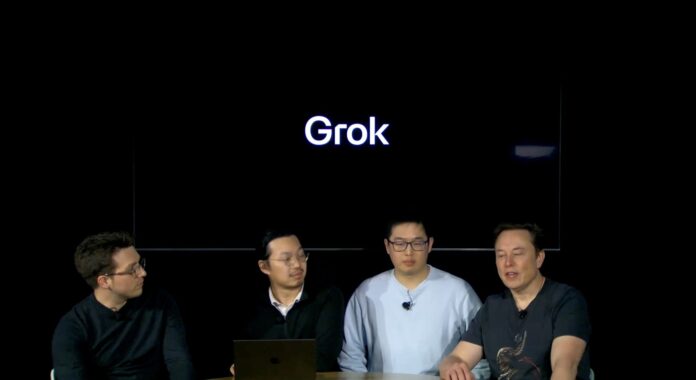
Case Highlights
- Elon Musk’s xAI has filed a California federal court lawsuit alleging former engineer Xuechen Li stole proprietary Grok chatbot technology before joining OpenAI in January 2025
- Li allegedly admitted to taking company files and “covering his tracks” during an August 14 meeting, with additional stolen materials later discovered on his devices
- The lawsuit seeks unspecified monetary damages and a restraining order to block Li’s employment at OpenAI, escalating the ongoing legal battle between Musk and his former AI company
SAN JOSE, CA – The artificial intelligence wars just got messier. Elon Musk’s xAI has launched a federal lawsuit against one of its former engineers, alleging the theft of trade secrets that could give rival OpenAI a competitive edge in the high-stakes chatbot market. The complaint, filed Thursday in California federal court, represents the latest salvo in an increasingly bitter corporate feud that has transformed from philosophical differences into courtroom warfare.
The target of xAI’s legal offensive is Xuechen Li, a former engineer who allegedly walked out the door with confidential information about Grok, xAI’s ChatGPT competitor that Musk has positioned as a more innovative and unrestricted alternative to OpenAI’s flagship product. According to court documents, Li didn’t just take a few files on his way out—he systematically extracted what xAI characterizes as “cutting-edge AI technologies with features superior to those offered by ChatGPT.”
The timing of Li’s alleged theft reads like a corporate espionage thriller. The lawsuit claims Li began his scheme in July, shortly after accepting a position at OpenAI and cashing out $7 million worth of xAI stock options. The complaint paints a picture of calculated corporate betrayal, with Li allegedly using his insider access to xAI’s most sensitive technological assets while simultaneously preparing to defect to the company’s primary competitor.
What makes this case particularly explosive is Li’s alleged confession. During an August 14 meeting, according to xAI’s legal filing, Li admitted to stealing company files and actively “covering his tracks” to hide his digital footprints. But the drama didn’t end there. The complaint reveals that xAI’s subsequent forensic investigation uncovered additional stolen materials on Li’s devices that he had failed to disclose during his supposed moment of honesty.
The alleged theft isn’t just about a few lines of code or training data—it strikes at the heart of xAI’s competitive positioning. The company argues that Li’s stolen secrets could enable OpenAI to enhance ChatGPT with what xAI describes as its “more innovative AI and imaginative features.” In the brutally competitive AI landscape, where companies are racing to achieve artificial general intelligence, such technological advantages can mean the difference between market dominance and irrelevance.
This lawsuit emerges against the backdrop of Musk’s increasingly adversarial relationship with OpenAI, the company he co-founded in 2015. What began as a mission to develop AI for humanity’s benefit has devolved into a bitter legal and public relations war, with Musk accusing his former partners of abandoning their nonprofit principles in pursuit of profit. The entrepreneur has repeatedly criticized OpenAI’s transformation from an open-source research organization into what he characterizes as a closed, profit-driven entity controlled by Microsoft.
The current legal action represents just one front in Musk’s multi-pronged assault on OpenAI’s business model. In separate litigation, Musk has sued OpenAI and CEO Sam Altman for allegedly deviating from the company’s original humanitarian mission. OpenAI fired back in April with a countersuit alleging harassment, creating a legal quagmire that shows no signs of resolution.
Adding another layer of complexity, xAI filed yet another lawsuit just this week, this time targeting both OpenAI and Apple for allegedly monopolizing the AI chatbot market on Apple devices. The complaint suggests a coordinated strategy to challenge OpenAI’s market position through multiple legal avenues, potentially forcing the company to fight expensive battles on several fronts simultaneously.
The Li case highlights the intense competition for AI talent that has transformed Silicon Valley into a corporate battlefield. Engineers with expertise in large language models and neural network architecture command astronomical salaries and signing bonuses, making them prime targets for recruitment and, apparently, espionage. The allegation that Li sold $7 million in stock options before his alleged theft suggests the financial stakes involved in these talent wars.
For xAI, the lawsuit serves multiple strategic purposes beyond potential monetary recovery. By seeking a restraining order to block Li’s employment at OpenAI, the company aims to prevent its alleged trade secrets from being immediately deployed against it. The legal action also sends a clear message to other employees considering similar defections that xAI will aggressively pursue legal remedies against perceived corporate espionage.
The case also underscores the broader regulatory and legal challenges facing the AI industry as companies race to develop increasingly powerful systems. With limited oversight and few established precedents for AI-related intellectual property disputes, companies are essentially writing the legal playbook as they compete for dominance in what many consider the most important technological race of the 21st century.
Neither Li, OpenAI representatives, nor xAI spokespersons immediately responded to requests for comment, leaving many questions about the specific technologies allegedly stolen and the potential impact on both companies’ development timelines. OpenAI notably is not named as a defendant in the current lawsuit, though that could change as the case develops and xAI’s legal team gathers additional evidence.
The outcome of this case could establish important precedents for how courts handle AI-related trade secret disputes, potentially influencing how companies structure their confidentiality agreements and employee retention strategies. As the AI revolution accelerates, expect more such legal battles as companies fight to protect their technological advantages in an industry where today’s breakthrough can become tomorrow’s commodity.
🛑 It should be noted that the assertions in this lawsuit are merely allegations and have not been proven in a court of law.


